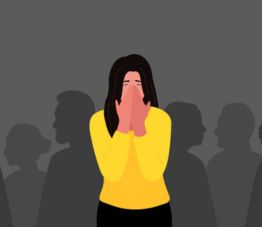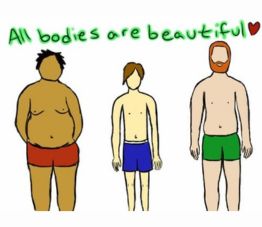There are many challenges in life that are beyond your control. You have no influence over the weather, your inherited traits, incurable diseases, or your aging process. Although you might have influence, you can’t really stop other grownups from acting the way they do.
It might be challenging to determine whether someone is happy or unhappy with their lives. When we see someone alone, stressed out, or fighting, we tend to assume they aren’t happy since we frequently confuse laughing or a smile with contentment. That might not be the case, though. Sometimes those who are unhappy may not even be aware of why they are resentful and unhappy. Actually, it’s very challenging to pin down.
It turns out that just approximately half of a person’s happiness may be attributed to genetics and environmental factors including family history, career, and financial status. While money can increase happiness when it helps people escape poverty, it has little effect on their emotional health after that. The good news is that your thoughts and behaviors, as well as the experiences you have every day, determine approximately half of your happiness. Finding and changing the habits that are bringing you down is a wonderful first step to enhancing your overall happiness.
According to research, patterns in our lives—patterns in what we do, known as behavioral patterns, and patterns in what we think, known as cognitive patterns—are responsible for both happiness and misery. Different cognitive and behavioral patterns produce various emotional patterns, which in turn influence how joyful we feel on any given day.
The road to happiness can be challenging, and major life changes may occasionally be necessary. In actuality, cultivating happiness requires making the appropriate life choices and then adhering to them consistently. Everybody experiences occasional low moods; if they are brought on by a specific circumstance, that is natural. However, a lot of people experience sadness most of the time, which indicates a greater issue. What then are the primary reasons for unhappiness?
Here are a few prominent reasons in today’s world that contribute to unhappiness in people.
- Letting go of hobbies you loved – Remember those carefree, youthful days when you thought the concept of time itself was bizarre? Those days are gone now. Making time for your hobbies is still vital despite the hectic, draining, and occasionally dull nature of ordinary adult life. You might not have the luxury of being paid to play and dance as a grownup. However, you may still carve out time to play and dance, to laugh and enjoy everything. This will give your life a boost of good vibes.
- Holding onto the past – Everyone has gone through some trying and hard times in the past, but exceptional performers understand that their history does not determine who they are today. From these encounters, they learn important lessons and are inspired to do more. Holding onto grudges causes regret, resentment, and bitterness, which further drags you down the rabbit hole of unhappiness. Your output and job quality could suffer as a result.
- Only focusing on what’s uncontrollable – Everybody has individual limitations and difficulties, some of which we can control and others of which we cannot. Focus on the things you can control rather than the things you have no control over. Move past your anger and let it go as much as you can. You benefit more from forgiveness than the person who offended you.
- Not setting realistic and doable goals – Dreaming big is fine, but make sure your objectives are achievable and consistent with your skills. You will only get more miserable if you set unreachable goals for yourself.
- Not sleeping well – Sleep is vital for your happiness in a variety of ways. Reasonably, doctors advise getting between 7 and 9 hours of sleep each night. When you don’t get enough sleep, your brain struggles to control its own functions, and your emotions may start to run amok and dominate. Even while the science may be complicated, there is no denying that getting enough sleep makes individuals happier.
- Increased alcohol intake – Drinking a couple of glasses of wine with dinner or a few beers with friends is usually acceptable, but if the next day you find yourself feeling dissatisfied, stressed out, or anxious, it might be wise to reconsider that behaviour. Everyone is unique, thus the behaviour of your friends or family may not be appropriate for you. Even if alcohol and drugs have a long history in our society, that doesn’t necessarily imply they don’t have a role in your unhappiness.
- Being cooped up indoors – There are numerous excuses to leave the house. For instance, it has been demonstrated scientifically that being outdoors around nature makes people happier. It has never been more crucial to acknowledge that truth than it is right now, when so many of us spend more time indoors due to working from home. People who do spend more time in nature typically report being happier overall, and studies have shown that going outside strengthens your immune system, lowers stress levels, and lowers blood pressure. Being happier is a result of many factors.
All these factors along with a few other negative patterns contribute to unhappiness and will continue to do so until you make a conscious choice of breaking the cycle by choosing to indulge in habits that will produce better outcomes.
Additional Tips –
- Workout and prepare a nutritious meal.
- Do things that make you feel good inside, like reading, gardening, or the arts.
- Regularly record your thoughts in a journal.
- Have a positive support system.
- Stay connected to friends and family.
- Stick to a workable routine.
- Stay off social media as much as possible.
Identifying what makes us unhappy in our lives needs us to first identify what makes us happy. Whatever is giving you tension, discomfort, anxiety, or overall misery in your life may be a relationship, a job, a living condition, or anything else. Making decisions about how to go in order to live a happy life requires understanding what has changed or what is causing your misery.
To decide where to focus your attention and time to attain the calm life you desire, as opposed to what aspects of your life you might want to try eliminating or changing, it can be incredibly helpful to develop a simple side-by-side comparison list.
Therapy might be an excellent place to start if you’ve experienced any kind of trauma or are grieving a loss, even if it means that that might not be the first thing you think of when working towards being happy again. Therapy can have a good effect and assist you in refocusing your efforts, accepting a traumatic or uncomfortable event, and making a healthy, constructive transition so that you can rediscover your joy.
Reach out to a mental health professional for assistance if you’re having trouble or need help navigating. A therapist might help you find permanent happiness again in ways you might not have thought of on your own. It is really beneficial to have an expert discuss the benefits and drawbacks with us. We may occasionally be able to perceive something from a different perspective thanks to unbiased contributions. What brings happiness to one person may not bring happiness to another since everyone finds satisfaction in various ways.
Conclusion –
Sometimes, because we find it difficult to let go, we actively choose to be unhappy. Or we unintentionally selected it because we haven’t looked closely at our lives and identified what we need to eliminate. You cannot pursue happiness if you don’t love yourself enough to do so. It may be challenging to leave the boxing ring, but it’s time to stop criticizing yourself and start learning to appreciate the image of yourself in the mirror.
In the end, you get to decide whether to be happy. It need not be difficult to find happiness. Sometimes all it takes is opening the door to the exciting possibilities in front of you. It’s important to keep in mind that feelings of sadness pass quickly. Fundamentally, all feelings are merely transitory. Any type of sorrow you go through in life—whether it is grief, melancholy, or anything else—can be healed. You’ll need to put in the effort, and it won’t be easy, but you can reclaim your happiness.



